Archive
The Public Be Damned
by Theodore Butler - Butler Research | August 11th, 2011
Here’s an excerpt from an update sent to subscribers on August 10, 2011. For subscription information please go to www.butlerresearch.com
It is important to try to understand, as much as possible, what are the dynamics behind the large price moves recently. It is human nature to accept any plausible-sounding reason offered if it is in conformance with the price direction. In a big price move, we demand an immediate explanation and then we accept any explanation offered, even if it doesn’t stand the scrutiny of further analysis. For instance, big price declines in copper and crude oil are immediately explained and accepted as being due to weakness in the world economy. Yet we know that the world economy and copper and oil fundamentals can’t possibly change quickly enough to be the real explanation. Please allow me to offer what I think is the real cause behind all the crazy price volatility and then to suggest something constructive you might want to do about it.
What’s behind the volatility is unbridled speculation and computer-type HFT trading gone wild. Oil didn’t drop $20 a barrel or copper 25 cents a pound because there was a sudden fall-off in demand or increase in supplies. This was all about speculative trading gone haywire. Let me be more specific. The whole premise of the economic justification behind commodity futures trading has been bastardized. US law has sanctioned the trading of commodity futures for the express purpose of allowing legitimate producers and consumers to hedge or transfer their price risks to speculators. But the wild price swings we are witnessing are not related to legitimate hedging. The volatility is as a result of speculators battling speculators, with real hedgers largely on the sideline. This is relatively easy to demonstrate.
The big price moves are the result of moving averages and other technical signals being violated. Technical funds and other momentum type traders rush into and out of the markets, often on an intra-day basis, as a result of these price changes. Against those technical type traders are aligned the “commercials” that take the opposite side of these transactions. But these commercials are also speculators and are not the legitimate hedgers they purport to be. Real producers and consumers don’t hedge based upon changes in moving averages on a daily basis. Real hedgers don’t day trade. Real hedgers don’t engage in HFT. The fact is that the commercial traders are just trading against the tech fund speculators and this makes the commercial traders speculators as well. This is an important distinction. It is why the big commercials in COMEX gold may be in trouble, namely, they weren’t hedging in the first place and their short speculation may have been a serious miscalculation because it wasn’t a legitimate hedge originally.
If my analysis is correct, then most of the volatility is due to one giant sick game of unbridled speculation. The speculators include not just the obvious and visible speculators, but also the commercials pretending to be hedgers. These commercial speculators in drag include the largest banks, like JPMorgan. How has it gotten to the point where our insured deposit taking institutions are among the biggest speculators? This speculative trading activity on the part of banks has greatly increased the current price volatility and increased the dangers of systemic risk. How is that good?
We’ve gotten to this point because our financial system structure has encouraged more and more speculation on the part of our important financial institutions. Leading us on the way to ruin is the criminal enterprise, also known as the CME Group, which has become dependent of encouraging more of the mindless daily speculative trading to fatten its bottom line. So harmful is the CME’s role in all of this that in order for the CME to be blessed, the public must be damned.
What can we do about this sorry state of affairs? Quite simply, what we have been doing, namely, to petition the regulators to enforce the laws governing manipulation and disruptive trading practices. I know that many are tired of petitioning the CFTC because there has been little visible response from them regarding the silver manipulation. Yet I am still convinced that this is the best and perhaps only constructive route. I’m not going to beg you to contact them if you feel it’s a waste of time. Likewise, I’m not going to promise you that the agency will do the right thing, as that’s up to them. All I do know is that silver is manipulated by virtue of a concentrated short position on the COMEX and that is against the law. You must always do what you feel is right, regardless of how it may turn out or how many times you tried in the past or whether someone else will also do the right thing.
I know I’m going to send this article to the CFTC (as well as to the CME and JPMorgan). I invite you to do likewise if you are so inclined or write in your own words and ask them to break up the concentrated short position in silver. I would ask that you remain respectful if you do write so as not to distort the intent of your message. I know most of us are sick and tired of the silver crime in progress and the regulators failure to deal with it, but you must rise above your emotions to be effective.
Theodore Butler
Butlerresearch.com
For subscription information to Ted Butler’s private newsletter, please go to www.butlerresearch.com
Theodore Butler is an independent Silver Analyst who has been publishing unique precious metals commentaries on the internet since 1996. He offers a subscription service with once or twice weekly commentaries including detailed analysis of the Commitment of Traders Report, regulatory developments, supply/demand considerations, and topics of interest to investors in precious metals, with an emphasis on silver. Always outside the box. You can subscribe to his service by clicking here.
Trading Of Over The Counter Gold And Silver To Be Illegal Beginning July 15
Tyler Durden | Zero Hedge | June 19, 2011
One small step toward Executive Order 6102 part 2, and one giant leap for corruptcongressmankind.
From: FOREX.com <[email protected]>
Date: Fri, Jun 17, 2011 at 6:11 PM
Subject: Important Account Notice Re: Metals Trading
To: xxxImportant Account Notice Re: Metals Trading
We wanted to make you aware of some upcoming changes to FOREX.com’s product offering. As a result of the Dodd-Frank Act enacted by US Congress, a new regulation prohibiting US residents from trading over the counter precious metals, including gold and silver, will go into effect on Friday, July 15, 2011.
In conjunction with this new regulation, FOREX.com must discontinue metals trading for US residents on Friday, July 15, 2011 at the close of trading at 5pm ET. As a result, all open metals positions must be closed by July 15, 2011 at 5pm ET.
We encourage you to wind down your trading activity in these products over the next month in anticipation of the new rule, as any open XAU or XAG positions that remain open prior to July 15, 2011 at approximately 5:00 pm ET will be automatically liquidated.
We sincerely regret any inconvenience complying with the new U.S. regulation may cause you. Should you have any questions, please feel free to contact our customer service team.
Sincerely,
The Team at FOREX.com
So far we have only received this warning from Forex.com. We are waiting to see which other dealers inform their customers that trading gold and silver over the counter will soon be illegal.
It appears that Forex.com’s interpretation of the law stems primarily from Section 742(a) of theDodd-Frank act which “prohibits any person [which again includes companies]from entering into, or offering to enter into, a transaction in any commodity with a person that is not an eligible contract participant or an eligible commercial entity, on a leveraged or margined basis.”
Some prehistory from Hedge Fund Law Blog:
The Dodd-Frank Wall Street Reform and Consumer Protection Act (“Act”) has changed a number of laws in all of the securities acts including the Commodity Exchange Act. Two specific changes deal with certain transactions in commodities on the spot market. Specifically, Section 742 of the Act deals with retail commodity transactions. In this section, the text of the Commodity Exchange Act is amended to include new Section 2(c)(2)(D) (dealing with retail commodity transactions) and new Section 2(c)(2)(E) (prohibiting trading in spot forex with retail investors unless the trader is subject to regulations by a Federal regulatory agency, i.e. CFTC, SEC, etc.). According to a congressional rulemaking spreadsheet, these are effective 180 days from the date of enactment.
We provide an overview of the new sections and have reprinted them in full below.
New CEA Section 2(c)(2)(D) – Concerning Spot Commodities (Metals)
The central import of new CEA Section 2(c)(2)(D) is to broaden the CFTC’s power with respect to retail commodity transactions. Essentially any spot commodities transaction (i.e. spot metals) will be subject to CFTC jurisdiction and rulemaking authority. There is an exemption for commodities which are actually delivered within 28 days. While the CFTC wanted an exemption in which commodities would need to be delivered within 2 days, various coin collectors were able to lobby congress for a longer delivery period (see here).
It is likely we will see the CFTC propose regulations under this new section and we will keep you updated on any regulatory pronouncements with respect to this new section.
New CEA Section 2(c)(2)(E) – Concerning Spot Forex
The central import of new CEA Section 2(c)(2)(E) is to regulate the spot forex markets. While the section requires the CFTC to finalize regulations with respect to spot forex (which were proposed earlier in January), it also, interestingly, provides oversight of the markets to other federal regulatory agencies such as the CFTC. This means that in the future, different market participants may be subject to different regulatory regimes with respect to trading in same underlying instruments. A Wall Street Journal article discusses the impact of this with respect to firms which engage in other activities in addition to retail forex transactions. The CFTC’s proposed rules establish certain compliance parameters for retail forex transactions, requires registration of retail forex managers and requires such managers to pass a new regulatory exam called the Series 34 exam. We do not yet know whether the other regulatory agencies will adopt rules similar to the CFTC or if they will write rules from scratch.
Next, from Henderson & Lyman:
The prohibition of Section 742(a) does not apply, however, if such a transaction results in actual delivery within 28 days, or creates an enforceable obligation to deliver between a seller and a buyer that have the ability to deliver, and accept delivery of, the commodity in connection with their lines of business. This may be problematic as in most spot metals trading virtually all contracts fail to meet these requirements. As a result, although the courts’ interpretation of Section 742(a) is unknown, Section 742(a) is likely to have a significantly negative impact on the OTC cash precious metals industry. Here too, it is essential that those who offer to be a counterparty to OTC metals transactions seek professional help to discuss possible operational and regulatory contingency plans.
The actual rule language exempts a transaction if it “results in actual delivery within 28 days or such other period as the Commission may determine by rule or regulation based upon the longer period as the Commission may determine by rule or regulation based upon the typical commercial practice in cash or spot markets for the commodity involved;” Alas, the commission has decided not to intervene and keep the exemption status window so small as to affect virtually all exchanges which transact in the gold and silver spot market.
Elimination of OTC Forex
Effective 90 days from its inception, the Dodd-Frank Act bans most retail OTC forex transactions. Section 742(c) of the Act states as follows:
…A person [which includes companies] shall not offer to, or enter into with, a person that is not an eligible contract participant, any agreement, contract, or transaction in foreign currency except pursuant to a rule or regulation of a Federal regulatory agency allowing the agreement, contract, or transaction under such terms and conditions as the Federal regulatory agency shall prescribe…
This provision will not come into effect, however, if the CFTC or another eligible federal body issues guidelines relating to the regulation of foreign currency within 90 days of its enactment. Registrants and the public are currently being encouraged by the CFTC to provide insight into how the Act should be enforced. See CFTC Rulemakings regarding OTC Derivatives located at the following website address, under Section XX – Foreign Currency (Retail Off Exchange). It is essential that OTC forex participants seek professional help to discuss possible operational and regulatory contingency plans.
Elimination of OTC Metals
As for OTC precious metals such as gold or silver, Section 742(a) of the Act prohibits any person [which again includes companies]from entering into, or offering to enter into, a transaction in any commodity with a person that is not an eligible contract participant or an eligible commercial entity, on a leveraged or margined basis. This provision intends to expand the narrow so called “Zelener fix” in the Farm Bill previously ratified by congress in 2008. The Farm Bill empowered the CFTC to pursue anti-fraud actions involving rolling spot transactions and/or other leveraged forex transactions without the need to prove that they are futures contracts. The Dodd-Frank Act now expands this authority to include virtually all retail cash commodity market products that involve leverage or margin – in other words OTC precious metals.
The prohibition of Section 742(a) does not apply, however, if such a transaction results in actual delivery within 28 days, or creates an enforceable obligation to deliver between a seller and a buyer that have the ability to deliver, and accept delivery of, the commodity in connection with their lines of business. This may be problematic as in most spot metals trading virtually all contracts fail to meet these requirements. As a result, although the courts’ interpretation of Section 742(a) is unknown, Section 742(a) is likely to have a significantly negative impact on the OTC cash precious metals industry. Here too, it is essential that those who offer to be a counterparty to OTC metals transactions seek professional help to discuss possible operational and regulatory contingency plans.
Small Pool Exemption Eliminated
Pursuant to Section 403 of Act, the “privateadviser” exemption, namelySection 203(b)(3) of the Investment Advisers Act of 1940 (“Advisers Act”), will be eliminated within one year of the Act’s effective date (July 21, 2011). Historically, many unregistered U.S. fund managers had relied on this exemption to avoid registration where they:
(1) had fewer than 15 clients in the past 12 months;
(2) do not hold themselves out generally to the public as investment advisers; and
(3) do not act as investment advisers to a registered investment company or business development company.
At present, advisers can treat the unregistered funds that they advise, rather than the investors in those funds, as their clients for purposes of this exemption. A common practice has thus evolved whereby certain advisers manage up to 14 unregistered funds without having to register under the Advisers Act. Accordingly, the removal of this exemption represents a significant shift in the regulatory landscape, as this practice will no longer be allowable in approximately one year.
Also an important consideration, the Dodd-Frank Act mandates new federal registration and regulation thresholds based on the amount of assets a manager has under management (“AUM”). Although not yet underway, it is possible that various states may enact legislation designed to create a similar registration framework for managers whose AUM fall beneath the new federal levels.
Accredited Investor Qualifications
Section 413(a) of the Act alters the financial qualifications of who can be considered an accredited investor, and thus a qualified as eligible participant (“QEP”). Specifically, the revised accredited investor standard includes only the following types of individuals:
1) A natural person whose individual net worth, or joint net worth with spouse, is at least $1,000,000, excluding the value of such investor’s primary residence;
2) A natural person who had individual income in excess of $200,000 in each of the two most recent years or joint income with spouse in excess of $300,000 in each of those years and a reasonable expectation of reaching the same income level in the current year; or
3) A director, executive officer, or general partner of the issuer of the securities being offered or sold, or a director, executive officer, or general partner of a general partner of that issuer.
Based on this language, it is important to note that the revised accredited investor standard only applies to new investors and does not cover existing investors. However, additional subscriptions from existing investors are generally treated as requiring confirmation of continuing investor eligibility.
On July 27th, 2010, the SEC provided additional clarity regarding the valuation of an individual’s primary residence when calculating net worth. In particular, the SEC has interpreted this provision as follows:
Section 413(a) of the Dodd-Frank Act does not define the term “value,” nor does it address the treatment of mortgage and other indebtedness secured by the residence for purposes of the net worth calculation…Pending implementation of the changes to the Commission’s rules required by the Act, the related amount of indebtedness secured by the primary residence up to its fair market value may also be excluded. Indebtedness secured by the residence in excess of the value of the home should be considered a liability and deducted from the investor’s net worth.
h/t Ryan

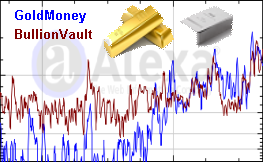
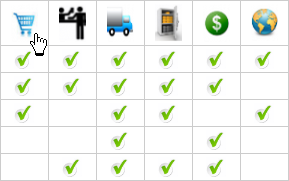


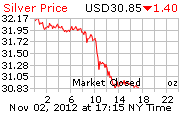
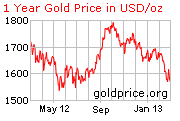
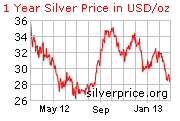
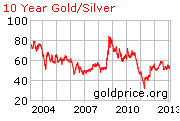
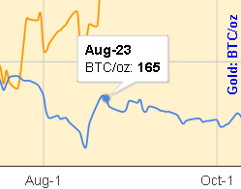
High Frequency Trading in Commodities
On April 26, three trading days before the “drive-by-shooting of silver” resulting in the $6 takedown in 12 minutes, the CME group announced that it had reached record volume the previous day in its COMEX Silver futures, as well as in open interest of its Silver options.
This record volume for Comex Silver futures in April was almost six times the average monthly volume of the last decade. Many attributed this high volume preceding the May 1 silver take-down and the speed & depth of the “crash” itself to High Frequency Trading (HFT) - the robotic execution of trades by powerful computers “capable of buying and selling thousands of different securities in the time it takes you to blink an eye“.
This CBSNews video The Speed Traders gives a rare behind-the-scene insight into the lightning fast but dark world of HFT.
Consider these stunning facts:
And this was exactly what Ted Butler said in his commentary after the May 1 silver price take down.
The ball is in CFTC’s court.
-
Related Reads on HFT in commodities, particularly gold & silver
-
Share this:
Like this: